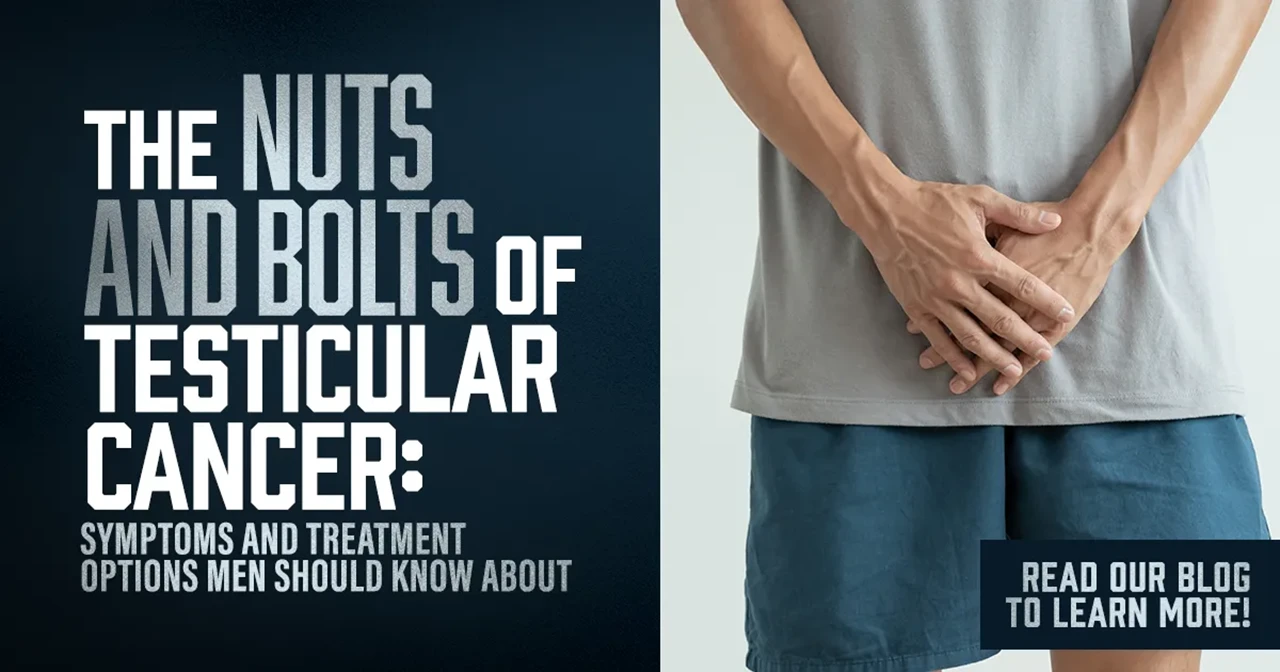Testicular cancer is a relatively rare type of cancer, but it’s the most common cancer in young men aged 15 to 44. The good news is that it’s also one of the most treatable forms of cancer, with survival rates above 95%. Early detection is crucial, so it’s essential for men to be aware of the signs and symptoms and understand their treatment options.
What is Testicular Cancer?
Testicular cancer occurs when healthy cells in the testicles (the male reproductive organs) undergo abnormal changes and grow uncontrollably. There are different types of testicular cancer, and treatment options are tailored to the specific diagnosis.
Symptoms to Watch Out For
Painless Lump or Swelling in a Testicle: This is the most common symptom of testicular cancer.
Change in Size or Shape of a Testicle: One testicle may become larger or firmer than the other or have an unusual shape.
Dull Ache in the Groin or Lower Abdomen: Some men experience a vague sense of heaviness or discomfort.
Sudden Fluid Buildup in the Scrotum
Breast Growth or Tenderness (rare): In some cases, testicular cancer cells produce hormones that can affect breast tissue.
It’s important to remember that most testicular lumps are NOT cancerous. However, any abnormality should be checked by a doctor right away.
Treatment Options
If testicular cancer is diagnosed, your doctor will discuss a treatment plan best suited for your specific case. Here’s a general overview:
Surgery: The primary treatment for most testicular cancers is surgery to remove the affected testicle. This process is called radical inguinal orchiectomy.
Radiation Therapy: High-energy rays are used to destroy cancer cells, sometimes used after surgery to prevent recurrence.
Chemotherapy: Powerful medication can kill cancer cells throughout the body. It’s often used for advanced testicular cancer or if the cancer has spread.
Beyond Physical Treatment
A testicular cancer diagnosis can be emotionally challenging. Don’t hesitate to seek support. Connect with support groups, counselors, and trusted loved ones to help you navigate the journey.

Self-Exams are Key
Early detection makes all the difference in testicular cancer outcomes. Make it a habit to perform testicular self-exams monthly. Here’s how:
Timing: After a warm shower or bath, when scrotal skin is relaxed.
Roll: Roll each testicle gently between your thumb and fingers.
Look and Feel: Check for any lumps, changes in size or texture, or pain.
If you notice any abnormalities, see your doctor right away. Don’t let fear or embarrassment delay getting checked!
Testicular Cancer Awareness Month is a reminder that being proactive about your health can be life-saving. Spread the word, encourage the men in your life to be aware, and support those affected by this disease. If you’re experiencing any symptoms or have noticed any abnormalities, reach out to us today. Visit urologyclinics.com or call (214) 580-2266 to schedule an appointment.


